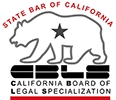Farmers’ markets and pop-up events are usually well attended; people appreciate the fresh goods, handmade items, and community atmosphere. However, these events are not without risk. Uneven pavement, slippery surfaces, overcrowded spaces, and temporary setups can lead to injuries. When someone sustains injuries at a temporary market, they may face medical bills, missed time at work, and other disruptions; liability determination can be challenging.
What Types of Hazards Are Common at These Events?
Temporary markets and events can involve many slip and fall hazards that are not always present in traditional commercial settings:
- Extension cords, crates, and folding signs.
- Spills from food and drink vendors.
- Wet grass or gravel.
- Uneven pavement or broken curbs.
These events may also lack clearly marked walkways, which can increase the chance of injury. Since pop-up events often rely on temporary structures, there can be additional risks from improperly anchored canopies, signage, or lighting equipment.
What Should I Do After an Injury at an Outdoor Market or Event?
Call 911 for serious injuries; visit a healthcare provider right after the incident if the injuries seem minimal. Notify the organizer or vendor before leaving the scene, depending on where the injury took place. If possible, take photographs of the area, showing the condition that caused the harm. Witness contact information can also be helpful.
A medical evaluation creates a record that connects the injury to the event. This record may be necessary to establish the timing and cause of the harm. Keeping documentation like receipts, reports, and correspondence related to the event or injury can also support a claim. The sooner this information is collected, the less likely it is to be lost or forgotten.
Who May Be Liable for an Injury at a Farmers Market or Pop-up Event?
If the injury was caused by a vendor’s equipment, such as an unsecured tent or spilled product, the vendor may be accountable. Or, if the injury took place in a common area, the organization hosting the event or the property owner may have a duty to keep that space reasonably safe.
The legal theory most often involved is premises liability. This area of law focuses on whether a property owner or occupier took reasonable steps to protect visitors. For instance, if an event organizer was aware of a broken sidewalk but failed to warn guests or arrange for repairs, they may be legally responsible for any resulting injury.
Can I File a Lawsuit for an Injury at a Temporary Event?
Legal action is possible if negligence can be shown. A successful claim typically involves proving that a party owed a duty of care, failed to act with reasonable caution, and caused harm as a result. This may involve reviewing contracts between vendors and organizers, evaluating maintenance procedures, and obtaining witness statements.
It may also require an investigation into past incidents at the event location. If similar injuries have occurred before, it may strengthen a claim that the hazard should have been corrected. Filing deadlines, known as statutes of limitations, apply in personal injury matters, so time is also a factor.
Temecula Slip and Fall Lawyers at Lerner, Moore, Silva, Cunningham & Rubel Represent Clients Injured in Indoor and Outdoor Events
If you were hurt at a farmers’ market or pop-up event, our Temecula slip and fall lawyers at Lerner, Moore, Silva, Cunningham & Rubel can review the details and explain the next steps. For a free consultation, call 909-889-1131 or complete our online form. With offices in Ontario and Victorville, we serve clients across the Inland Empire, including San Bernardino County, Riverside County, and the surrounding areas.


Disclaimer | Privacy Policy | SMS Terms & Conditions
Making a false or fraudulent workers’ compensation claim is a felony subject to up to five years in prison or a fine of up to $50,000 or double the value of the fraud, whichever is greater, or by both imprisonment and fine. The information contained on this website does not guarantee, warranty, or predict the outcome of your case.








